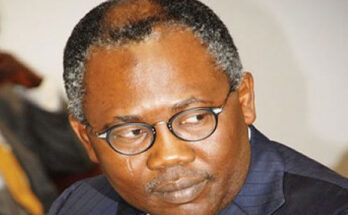Very few history textbooks may be as depressing as the records of Nigeria’s transition from a young independent nation to this pseudo-democratic chaos that is the product of half a century of conflicts of interests among the ruling elite. In their construction of this entity with the bricks of the very drawbacks that highlight our differences – ethnicity, religion and region – the only firm architecture is the wall that keeps the generation after them confined, frustrated, wasted, away from the corridors of power as long as age and health allow.
This is why a thinker once said the African politician is monarchical, ever desperate to remain in the corridors of power once out of the Boys’ Quarters. This biological confinement of the young is a cultural trend that dictates deference to elders and forbids any form of rebellion against their excesses. In the north, this syndrome is captured by the “ran ka ya dade” – long may you live – salutations that glorify even the place of known thieving politicians, while dissenting young occupants of political Boys’ Quarters are considered “yan iska” – rascals!
The rascal, in their dictionary of misinformation, is that person who is young, has no resources to pay political thugs and buy loyalty, can’t afford a convoy or even a decent car, wears jeans and tees often, criticises their excesses, and thus expected to kowtow to the Big Man, for possessing what he “lacks”. The occupants of Boys’ Quarters in this space have been ridiculed as disrespectful for merely demanding good governance from their “parents” in power, even honest analyses of their misappropriations are seen as the critics’ lack of “home training”. For the young ones are meant to be uncritical cheerleaders of incompetence, dishonesty and failures.
Interestingly, they were heads of states, presidents, ministers, commissioners, permanent secretaries, ambassadors and whatnots in their 20s and early 30s. Today, for the love of power, they dismiss citizens of that age-grade as kids, politically naïve, socially irresponsible and, for these biological crimes, incapable of running an institution. This way, they reduce the youth to inconsequential PAs and SAs to the SAs to the SSAs to powerful nonentities. Power-drunk, they couldn’t even leave the state and federal ministries of youth and even offices of the youth in their parties for the truly youthful.
But sometimes they raise pertinent concerns, highlighting the poor education of the young people expected to take over from them. That, sadly, is an indictment of their ilk, whose indecisions and policies destroyed the very educational system in which they were trained. Their rote boasts of elementary school leavers of their days being better educated than today’s graduates, meant to emphasise generational pride, should never be expressed, anywhere, no matter how, if indeed they have conscience. They romanticise their misdeeds because we’re in a morally hypocritical society that grants them unjustified immunity, just for being old.
This is not an agitation for the place of the youth in the national equation. Not with the many sycophantic youth groups honouring under-performing leaders as achievers. Not with the leaders of NANS honouring the very President that kept them at home for half a year. Just that, there are immensely resourceful young Nigerians who don’t deserve to be wasted as PAs and SAs to uninspiring leaders.
Though statistically incorrect, for every five improperly educated young Nigerian, there’s one absolutely sound one, cosmopolitan and in tune with new ideas, and new system of redeeming our ancestral woes. The portrayal of this generation as wholly intellectually incompetent and inferior is an uncharitable misrepresentation, a ploy to justify their overstaying in power even when no longer mentally fit to make sound great decisions. Also, we do not need more intellectual capital as mischievously proffered by them. What we need is a sanitised system that upholds and regulates the functionalities of our institutions. We all know the nepotism and corruption, and of course political opportunism, that have kept the qualified youth from being in the system. We know everything.
We’ll keep on breeding memorably clueless emergency leaders because, in our youth, when we’re intellectually sharper with revolutionary ideas and less responsibilities, we’re just “kids” and rascals running their errands: delivering letters for Otunba X, obtaining viagra for Chief Y and changing dollars for Alhaji Z. Only the loyal errand boys ride out of the Boys’ Quarters, on the back of godfatherism. May God save us from us.



